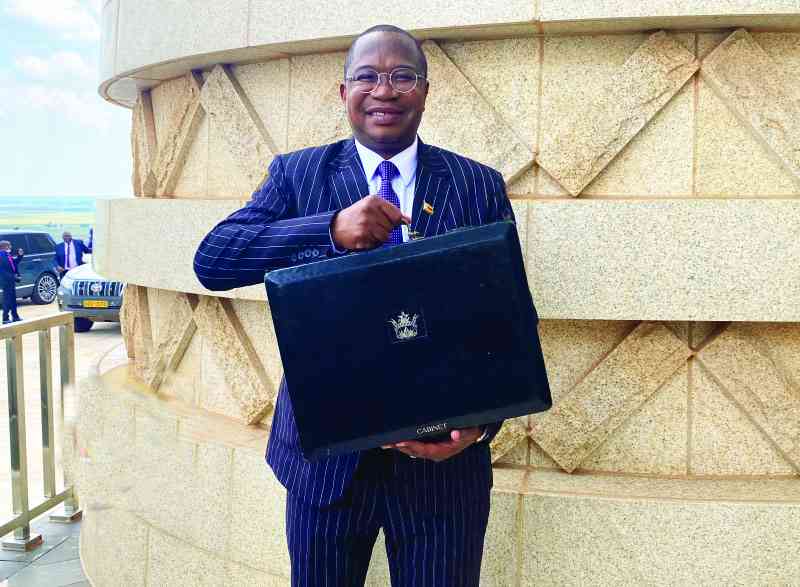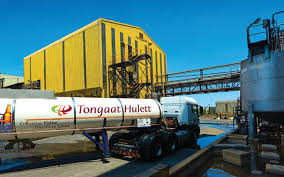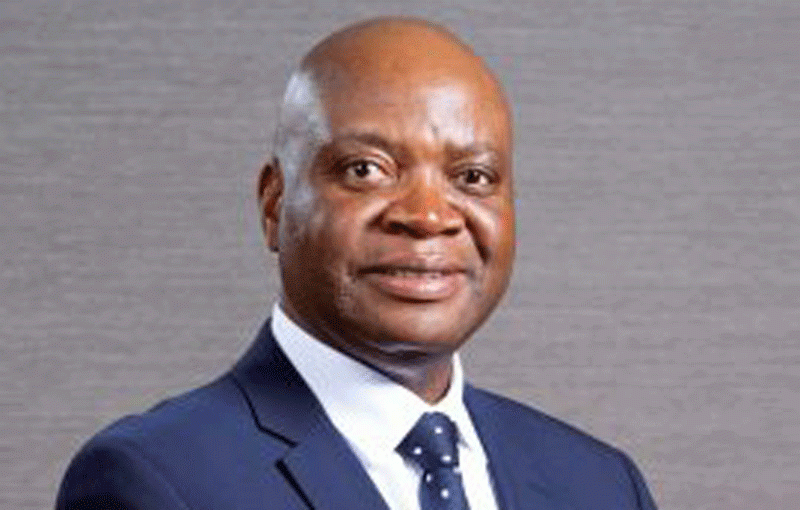
THE expected ravages of El Niño coupled with declining international mineral prices have forced the Treasury to downgrade economic projections for 2024 by two percentage points to 3,5%.
This year, the economy is expected to grow by 5,5%.
Zimbabwe generates a significant portion of its foreign currency earnings from mining and agriculture.
However, due to the El Niño weather phenomenon and declining international mineral prices, the economy is set to be impacted negatively.
Finance and Investment Promotion minister Mthuli Ncube made reference to this yesterday when he unveiled the ZW$58,2 trillion (about US$10 billion) national budget for 2024.
“The domestic economy is now projected to grow by 5,5% in 2023, a slight upward revision from the August projection of 5,3%, on account of better-than-expected output in agriculture, in particular, tobacco, wheat and cotton,” Ncube said.
“However, economic growth is expected to slow down to 3,5% in 2024, owing to the anticipated impact of the El Niño phenomenon being forecasted for the 2023/24 summer cropping season on agricultural output, as well as declining mineral commodity prices attributable to the global economic slowdown.”
The lower economic growth for next year has also been worsened by the continued impact of the depreciating local currency that keeps the economy in an inflationary mode.
- Interview: ‘Zim committed to tackling climate change’
- Finance minister reminded of PWDs
- ‘Zim needs infrastructure overhaul’
- Business sector plagued by uncertainty
Keep Reading
“Domestic prices have relatively been stable since the third quarter of the year, as reflected by month-on-month inflation, which declined from 12,1% in June 2023, to 4,5% in November 2023,” Ncube said.
“Concomitantly, the annual headline inflation declined from 30,9% in June 2023 to 21,6% in November 2023. In the outlook, annual inflation is expected to remain relatively stable and is projected to end the year 2023 slightly below 20%.
“In 2024, annual inflation is anticipated to end the year between 10% to 20%, reflecting continued tight monetary and fiscal policies.”
He said the introduction of a wholesale foreign exchange auction, on the back of the recent liberalisation of the exchange rate, saw the parallel market premium declining from over 140% in May to about 20% in October this year.
“Going into 2024, the government seeks to consolidate and entrench the stability to
To Page 2
From Page 1
facilitate economic transformation and preserve disposable incomes,” Ncube said.
“Fiscal restraint and tight monetary policy, together with a healthy current account position, provide the necessary conditions for currency and price stability.
“Specifically, the central bank will target a month-on-month inflation rate of less than 3% throughout 2024.”
He said revenue projections in the budget were based on the introduction of a wealth tax, as well as, raising fuel and passport fees, the corporate tax rate, and presumptive taxes, among others.
“Guided by the expected revenue envelope and the desired fiscal path, expenditures in 2024 are projected at ZW$58,2 trillion (19,8% of GDP),” Ncube said.
He said the proposed expenditures took into account the need to maintain the purchasing power of civil service salaries; ensuring the provision of core social services that benefit the poor; sustaining maintenance and rehabilitation of government infrastructure; prioritised support to ongoing public infrastructure projects; non-accumulation of arrears; and Increase funding of infrastructure projects through public-private partnerships.
He said the total budget financing gap amounted to ZW$9,2 trillion, comprising a budget deficit of ZW$4,3 trillion and the amortisation of loans and maturing government securities estimated at ZW$4,9 trillion.
However, the expenditure for next year was revised upwards by nearly 23% from pre-budget submissions of ZW$47,4 trillion as inflation continues to raise spending costs.
Topping the budget allocations next year is the Ministry of Primary and Secondary Education, which was allocated ZW$7,9 trillion, the Ministry of Health and Child Care was allocated ZW$6,3 trillion, and the Ministry of Lands, Agriculture, Fisheries, Water and Rural Development ZW$4,2 trillion.
Despite the declining infrastructure of water and sanitation, as well as healthcare, Ncube allocated ZW$8,6 trillion towards the security cluster.
The security cluster includes the Ministry of Defence, Home Affairs and Cultural Heritage, Prisons and Correctional Service, as well as special services.
Ncube said for the current year, revenue collections were projected at ZW$21,2 trillion, against projected expenditures of ZW$22,6 trillion.
He added this comprised the compensation of employees at ZW$10,9 trillion, use of goods and services of ZW$4,7 trillion, and capital expenditure of ZW$4 trillion.










